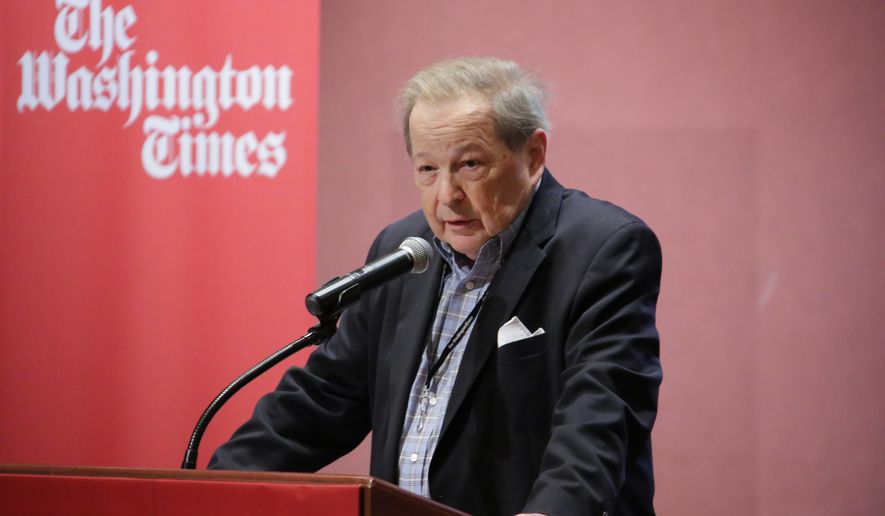OPINION:
NEW YORK CITY — He wasn’t on Twitter.
Wes Pruden was the last of a now-dead breed.
His devotion was entirely to the unvarnished truth. Unvarnished by gauzy praise. Especially unvarnished by the political speech codes that have strangled this country to a croaking whisper.
You cannot step foot onto a university campus today or into the political arena anywhere without sensing the heat of the furiously enforced speech codes that melt snowflakes and inspire rioting. Everyone on tenterhooks.
But not Mr. Pruden. His voice was never strangled or whimpering. His writing was at the same time incendiary and wickedly funny. And, always, elegant.
“Slicing open a vein and letting it flow,” was how Mr. Pruden once described the process.
An old source of mine — a federal bureaucrat of sorts — once told me how he would hide The Washington Times inside another newspaper to read during his lunch break. When he got to Mr. Pruden’s column, he would glance around to make sure he had not been spied by some lurking swamp creature.
Inevitably, he would blow his own cover by bursting out into uproarious laughter — a dead giveaway of a Pruden column.
Just this week, Mr. Pruden weighed in on the hysteria surrounding President Trump’s tweet about the little band of radical House Democrats led by Rep. Alexandria Ocasio-Cortez.
“Four noisy horseladies of the apocalypse,” Mr. Pruden called them. Yes, “horseladies.” Mr. Pruden was nothing if not always a bit genteel — with a glint in his eye, of course.
That was what separated Mr. Pruden from other great newspapermen, such as the great Westbrook Pegler, President Franklin D. Roosevelt’s tormenter. When Pegler got wound up about something, he would lose all manners to the point he seemed to forget his toilet training.
Not Mr. Pruden. Every dish of vitriol included a dollop of manners. Not just because Mr. Pruden was a mannerly gentleman in a proper straw fedora, but also because the dash of manners made the vitriol all the more effective.
When he was editor-in-chief of The Washington Times, Mr. Pruden would stay late reading every story after it was filed and edited in search of any unnecessarily florid writing.
More than anything, he would be on a search-and-destroy mission for any language in any story with the slightest whiff of political correctness. Mr. Pruden did not adhere to speech codes.
In 1991, Mr. Pruden was awarded the H.L. Mencken prize for capturing “the fire and spirit” of the famous “sage of Baltimore.”
They were certainly of the same old breed.
• Contact Charles Hurt at churt@washingtontimes.com or on Twitter @charleshurt.



